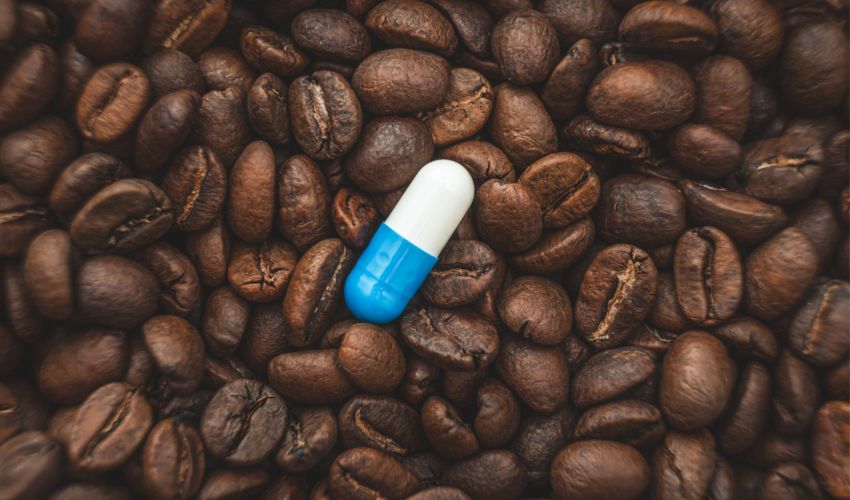Caffeine is a natural stimulant that is found in a wide range of beverages and foods, including coffee, tea, energy drinks, and chocolate. It is known for its ability to improve concentration, increase alertness, and reduce fatigue. Despite its widespread use, many people are still unaware of the many benefits and risks associated with caffeine consumption. In this article, we will take a deep dive into the world of caffeine, exploring its benefits, risks, and everything in between.
Health Benefits of Caffeine:
Caffeine consumption has been linked to a variety of health benefits, including:
- Reduced Risk of Alzheimer’s and Parkinson’s Disease: Studies have found that regular caffeine consumption may help to reduce the risk of developing Alzheimer’s and Parkinson’s disease, two common neurodegenerative conditions.
- Improved Cognitive Function: Caffeine can help to improve cognitive function, including memory, attention, and reaction time.
- Reduced Risk of Type 2 Diabetes: Research has shown that regular caffeine consumption may help to reduce the risk of developing Type 2 diabetes by improving insulin sensitivity and glucose metabolism.
- Protection Against Liver Disease: Studies have found that caffeine consumption may help to protect against liver disease, including cirrhosis and liver cancer.
Risks of Caffeine Consumption:
Despite its many benefits, caffeine consumption can also have its risks, including:
- Disrupted Sleep Patterns: Caffeine can interfere with sleep patterns, leading to insomnia or poor-quality sleep. Individuals who consume caffeine later in the day may have more difficulty falling asleep at night.
- Increased Anxiety and Restlessness: For some individuals, caffeine can increase feelings of anxiety and restlessness, especially in high doses.
- Dehydration: Caffeine is a diuretic, which means it can increase urine output and lead to dehydration. Individuals who consume caffeine should also make sure to drink plenty of water to offset its diuretic effects.
- Migraine Triggers: Caffeine can trigger migraines in some individuals who are more susceptible to this condition.

How Much Caffeine is Too Much?
The safe amount of caffeine consumption can vary from person to person, depending on factors such as age, weight, and sensitivity to its effects. As a general guideline, consuming up to 400 mg of caffeine per day is considered safe for most adults. However, individuals who are pregnant, have high blood pressure, or are sensitive to caffeine may need to consume less or avoid it altogether.
Alternatives to Caffeine:
For individuals who are looking to reduce their caffeine consumption or avoid it altogether, there are several alternatives available, including:
- Herbal Teas: Herbal teas, such as chamomile, peppermint, and ginger, can provide a calming and soothing effect without the caffeine.
- Water: Drinking plenty of water can help to keep the body hydrated and improve energy levels without the use of caffeine.
- Exercise: Regular exercise can help to improve energy levels and reduce fatigue, making it a great alternative to caffeine.

FAQs:
Is caffeine addictive?
Yes, caffeine is a mild stimulant that can be addictive. Regular consumption of caffeine can lead to physical dependence, and withdrawal symptoms can occur when caffeine consumption is stopped.
How much caffeine is safe to consume?
The safe amount of caffeine consumption varies from person to person. As a general guideline, consuming up to 400 mg of caffeine per day is considered safe for most adults.
Does caffeine cause heart palpitations?
Caffeine can cause heart palpitations in some people, especially those who are sensitive to its effects.
Can children consume caffeine?
It is recommended that children avoid consuming caffeine, as it can have negative effects on their developing brains and bodies.
Can caffeine improve athletic performance?
Yes, caffeine can improve athletic performance by increasing endurance and reducing fatigue.
Conclusion:
Caffeine is a popular stimulant that is consumed by millions of people worldwide. While it can offer many benefits, such as improved brain function, physical performance, and reduced risk of certain diseases, it also has its risks, such as disrupted sleep patterns, anxiety, and dehydration. By understanding the benefits and risks of caffeine, individuals can make informed decisions about their consumption and enjoy the many wonders that this natural stimulant has to offer.






















